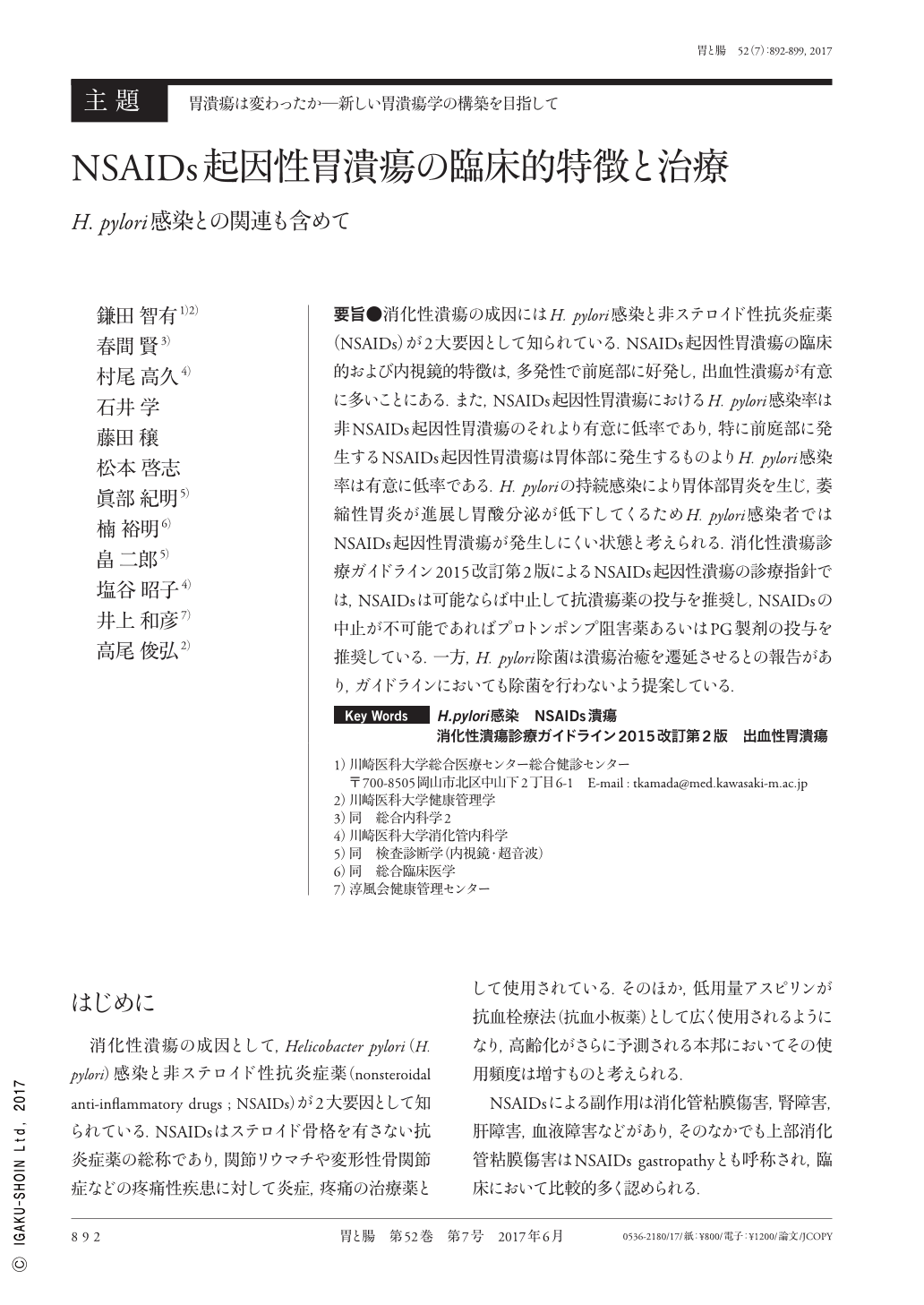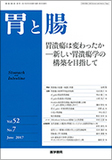Japanese
English
- 有料閲覧
- Abstract 文献概要
- 1ページ目 Look Inside
- 参考文献 Reference
要旨●消化性潰瘍の成因にはH. pylori感染と非ステロイド性抗炎症薬(NSAIDs)が2大要因として知られている.NSAIDs起因性胃潰瘍の臨床的および内視鏡的特徴は,多発性で前庭部に好発し,出血性潰瘍が有意に多いことにある.また,NSAIDs起因性胃潰瘍におけるH. pylori感染率は非NSAIDs起因性胃潰瘍のそれより有意に低率であり,特に前庭部に発生するNSAIDs起因性胃潰瘍は胃体部に発生するものよりH. pylori感染率は有意に低率である.H. pyloriの持続感染により胃体部胃炎を生じ,萎縮性胃炎が進展し胃酸分泌が低下してくるためH. pylori感染者ではNSAIDs起因性胃潰瘍が発生しにくい状態と考えられる.消化性潰瘍診療ガイドライン2015改訂第2版によるNSAIDs起因性潰瘍の診療指針では,NSAIDsは可能ならば中止して抗潰瘍薬の投与を推奨し,NSAIDsの中止が不可能であればプロトンポンプ阻害薬あるいはPG製剤の投与を推奨している.一方,H. pylori除菌は潰瘍治癒を遷延させるとの報告があり,ガイドラインにおいても除菌を行わないよう提案している.
Helicobacter pylori(H. pylori)infection and NSAIDs(non-steroidal anti-inflammatory drugs)are mechanistically involved in peptic ulcer etiology. Multiple lesions, occurrence in the antrum, and hemorrhagic ulcers were significantly more prevalent and H. pylori infection rate was significantly lower in patients with NSAID-associated gastric ulcers than in those with non-NSAID-associated gastric ulcers. In the NSAID-associated gastric ulcer group, the prevalence of H. pylori infection was significantly lower in patients with ulcers in the antrum than in those with ulcers in the corpus.
In patients with NSAID-related ulcers, NSAID use should be discontinued and anti-ulcer therapy should be provided. If NSAID use must continue, the ulcer should be treated using a proton pump inhibitor or prostaglandin analog according to evidence-based clinical practice guidelines for peptic ulcer disease 2015. In addition, H. pylori eradication does not affect treatment of NSAID-induced ulcers. However, some reports have indicated that H. pylori eradication delays the healing of these ulcers. Therefore, H. pylori eradication therapy is not recommended in patients with NSAID-related ulcers.

Copyright © 2017, Igaku-Shoin Ltd. All rights reserved.


